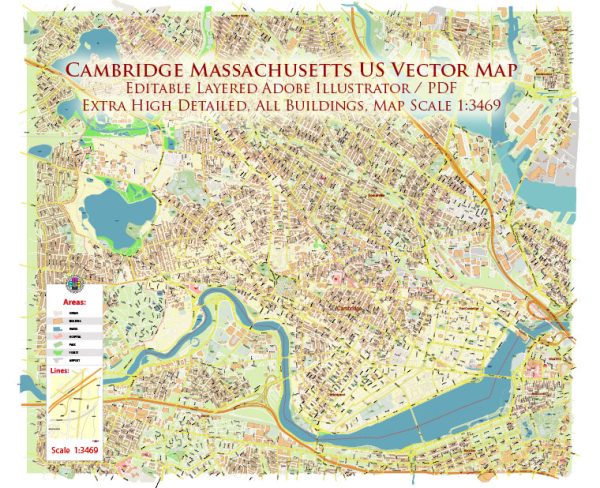Cambridge, Massachusetts, is a city rich in history and is located just across the Charles River from Boston. Its history is closely intertwined with the broader narrative of American history, and several key events and institutions have shaped its historical significance. Here’s a brief overview of Cambridge’s historical highlights:
- Early Settlement: Cambridge was first settled in 1630 by English Puritans who established it as “Newe Towne.” The city’s name was later changed to Cambridge in 1638, in honor of the prestigious University of Cambridge in England.
- Harvard University: Founded in 1636, Harvard is one of the oldest and most prestigious universities in the United States. Its establishment played a pivotal role in the intellectual and educational history of the nation, making Cambridge a center of learning and innovation.
- American Revolution: Cambridge played a crucial role in the American Revolution. General George Washington took command of the Continental Army here in 1775, and many of the early battles and preparations for the Revolution occurred in and around the city. The Battle of Bunker Hill was fought in nearby Charlestown.
- Longfellow House: The Longfellow House, also known as the Washington’s Headquarters, was once the home of poet Henry Wadsworth Longfellow. During the Revolution, it served as General George Washington’s headquarters. Today, it is a museum preserving the history of the house and the period.
- Literary and Cultural Heritage: Cambridge has a rich literary and cultural history, with influential writers and thinkers like Henry Wadsworth Longfellow, Ralph Waldo Emerson, and Henry David Thoreau residing in or being associated with the city. Their contributions helped shape American literature and transcendentalism.
- Technology and Innovation: Cambridge is home to numerous technology and innovation hubs, including the Massachusetts Institute of Technology (MIT) and numerous high-tech companies. The city has played a critical role in the development of modern technology and scientific advancements.
- Civil Rights Movement: During the 1960s, Cambridge was a focal point for the Civil Rights Movement in the Boston area. Racial tensions and protests in the city led to significant social and political changes.
- Modern Day: Today, Cambridge is a vibrant and diverse city known for its academic institutions, a thriving biotech industry, and a progressive cultural scene. The city’s historic buildings, squares, and neighborhoods coexist with modern innovation and forward-thinking communities.
Cambridge, Massachusetts, continues to be a city of historical significance and a dynamic part of American culture and innovation. Its rich history, academic institutions, and cultural contributions make it a place of enduring importance in the United States.


 Author: Kirill Shrayber, Ph.D. FRGS
Author: Kirill Shrayber, Ph.D. FRGS